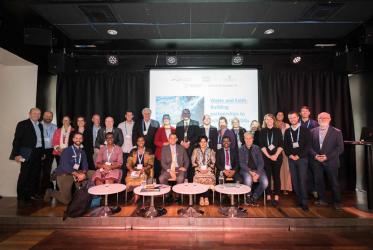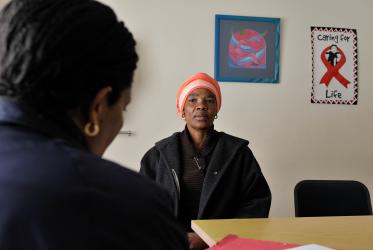Displaying 41 - 60 of 63
25 July 2018
G7 must address famine
22 May 2017
WCC Blue Community implements water changes in the Ecumenical Centre
16 February 2017
Local work by faith-based groups key to ending AIDS
27 June 2016
Winners of WCC photo contest announced
09 May 2016
WCC convenes strategic meeting on sustainable development goals
11 February 2016
Bossey students on their way to future of ecumenism
10 February 2016
In Albania, churches’ share of health care has grown in new era
23 December 2015













